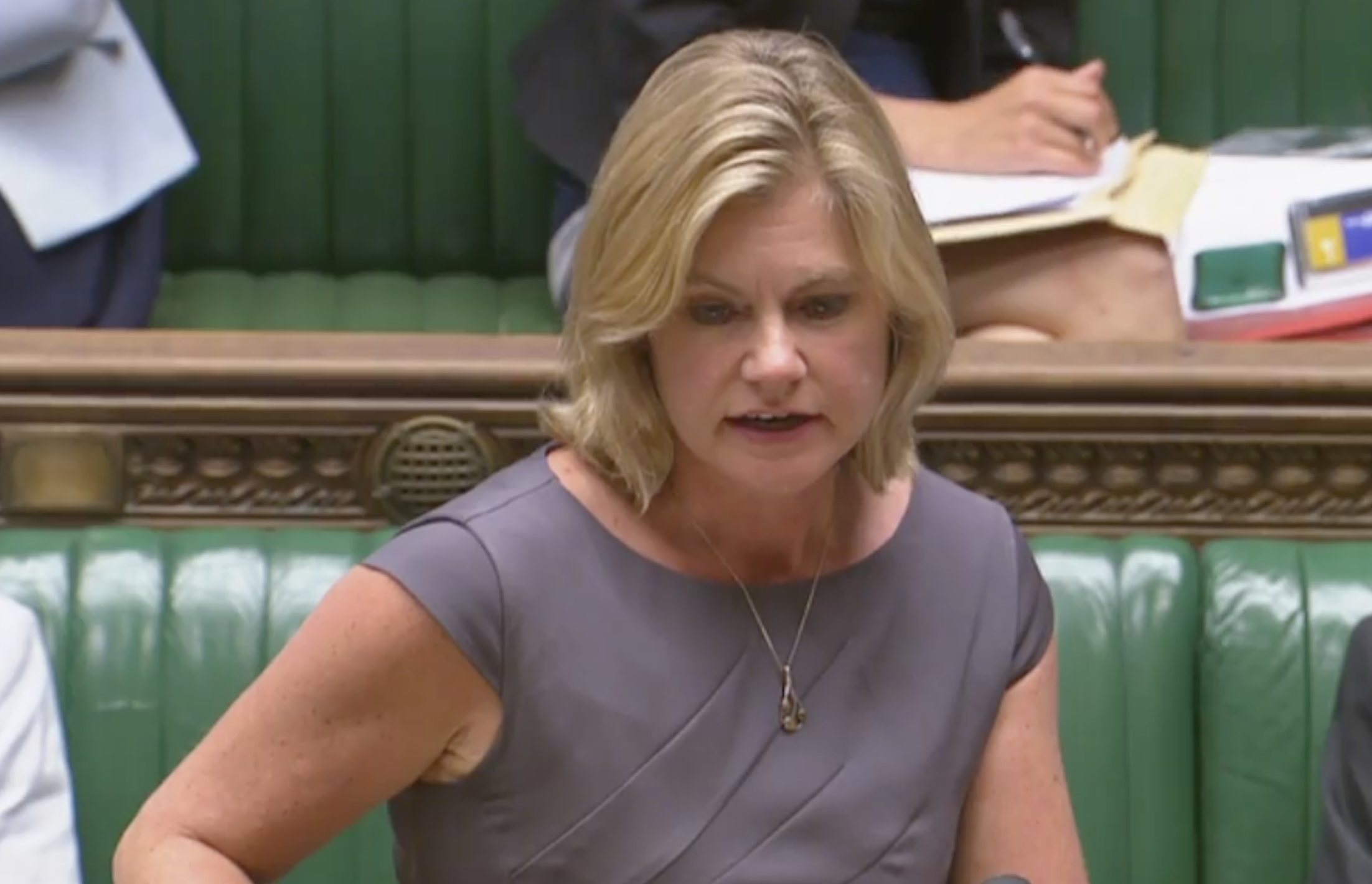Ending 'period poverty' among young women should be a priority in next week's Budget
One in 10 girls in the UK are unable to afford hygiene products and are missing school as a result. In a country as prosperous as Britain this is an outrage


Your support helps us to tell the story
From reproductive rights to climate change to Big Tech, The Independent is on the ground when the story is developing. Whether it's investigating the financials of Elon Musk's pro-Trump PAC or producing our latest documentary, 'The A Word', which shines a light on the American women fighting for reproductive rights, we know how important it is to parse out the facts from the messaging.
At such a critical moment in US history, we need reporters on the ground. Your donation allows us to keep sending journalists to speak to both sides of the story.
The Independent is trusted by Americans across the entire political spectrum. And unlike many other quality news outlets, we choose not to lock Americans out of our reporting and analysis with paywalls. We believe quality journalism should be available to everyone, paid for by those who can afford it.
Your support makes all the difference.“Periods are a natural process that are a part of nearly every girl’s life. But without access to toilets or sanitary products at school, girls’ lives are put on hold during their period, as they have little choice but to stay at home.”
Those are the words of ActionAid, a charity raising money for girls around Africa, where one in 10 female pupils miss school while they are on their period.
But the sad truth is that this is a problem we are facing here in the UK too. Plan International UK found that one in 10 girls were unable to afford hygiene products. The result is that here too, girls here are skipping school while on their period, or using unsuitable substitutes such as socks because they cannot afford to buy basic sanitary protection.
This is shocking, but for those of us who have been listening to those affected and campaigning alongside them, it is no longer surprising. If it was once a hidden scandal, it is now being brought into the open – and that means that there is simply no excuse for the Government to ignore their responsibility to tackle it.
Unfortunately though, that is what ministers have so far chosen to do. That is why MPs across parties are now coming together to demand better.
In a country as prosperous as Britain this is an outrage and that is why ahead of the Budget we are calling on the Government to provide for free sanitary products in all schools for those who need them.
That should not be all they do. We now know the problem but we need to know the scale of it. The research to date has been carried out by campaigners and groups like Plan International UK. School girls in Leeds recently told their stories about missing out on education, and teachers of how they keep supplies in the classroom, paying from their own pockets.
Food banks have told us of the increasing donations of, and demand for, tampons and pads which are gratefully received by women struggling to afford them. Campaign group Periodical Diary told us about donating sanitary products to a school, and finding female pupils quietly asking when they would be back with more supplies.
But we have not had any comprehensive research from the UK Government, even though assessing the problem is surely a sensible first step to solving it.
This is not something that requires vast sums of money being spent. Proposals from our parties, for example, have been costed at up to £3m or £10m a year, a tiny fraction of the education budget in either case.
Justine Greening is Secretary of State for both Education and for Women and Equalities. An issue like this cannot simply pass her by. We know she is well aware of it because we have challenged her on it in the House.
In March, she responded to a Liberal Democrat question by admitting it was “an important point” and promising to look into it. But last month, she told Labour MPs that it was an issue for schools, not the Government, and astonishingly suggested it was the fault of parents if their children lost out on education.
We are not prepared to let the Government off the hook that easily, and MPs across parties are united in the fight to end period poverty. The Government could easily take action on this, and it could start at this week’s Budget. But if it does not, MPs can address the issue directly as the Budget goes through the parliamentary process. In a Parliament with no Tory majority, MPs working together have the power to make change even when ministers drag their feet.
Period poverty should outrage everyone, regardless of party. The Chancellor should be wary of testing our commitment to tackling it.
Layla Moran MP is the Liberal Democrat education spokesperson; Paula Sherriff is the Labour MP for Dewsbury and chair of the All Party Parliamentary Group on Women’s Health
Join our commenting forum
Join thought-provoking conversations, follow other Independent readers and see their replies
Comments